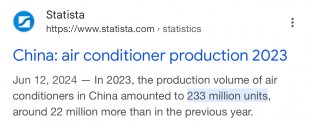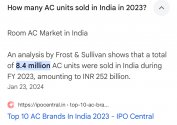What I suggest - >
Cash for having children - 500 rmb per month for one child until the child finish 18 years old. Cash directly from central government cause local governments have debt and cash issues.
500 rmb per month is a joke. A child can easily cost 2000 rmb a month. Living in big cities may cost 5000 rmb a month for a child.
The exorbitant costs are a function of a cultural problem, not a necessity. Chinese people believe that you need to provide a child with the most expensive of everything or you've not done your job being a good parent. This is at a toxic level where heavy diminishing returns mean that they pay several times more to get little if any benefit at all.
My middle class cousin in China has 1 kid, will not have another. She feeds this kid the most expensive things she can find in the market. The baby eats a grain porridge with a brand name called, "Best in the World." It's like 5x more expensive than a regular one and I don't see how it's better. Every organic food is measured to the gram and documented in a notebook before feeding. That baby wore the most expensive clothes made out of the hypoallogenic skin-soothing cloth and she doesn't even have any skin issues or allergies! A professional nanny charging more than the entire salary of either my cousin or her husband was hired for the first year of this child's life in order to ensure that she got taken care of to the highest standards... all this while the grandmother sat and watched and didn't do anything because she wasn't "professionally trained." When this kid goes to school, her parents will send expensive fruit baskets and gifts to the teachers for tutoring sessions and to curry favor. She will be sent to extracurricular piano, violin, swimming, chess, painting, taekwondo, etc... classes draining the parents' savings until they have to tap the grandparents' money to afford it. And in the end, they will produce a mediocre and exhausted child. Oh! And my cousin spent 100,000RMB at a recovery facility for 1 month after giving birth... she had no abnormal events or necessity for this.
I, on the other hand, will have 4 kids; 2 currently with 1 on the way. They will be fed as much as they want to eat when they cry for it and it will be cost-efficient but not cut-rate formula/food purchased in bulk when on sale, just like their diapers. My eldest is almost a year old and shoves handfuls of fruits, fish, shrimp, meat into her mouth and my cousin asks how I got my baby to grow so much faster than hers with a "professionally calculated" and regulated nutritional intake. Almost all of their clothes were free, as there are often enormous boxes of children's clothes given away by people whose kids had outgrown them. Same thing with the toys, and equipment; people give these away or sell them for 10% the MSRP all the time when their kids grow up. The grandparents take care of the kids when my wife and I are at work; they're not professionals but needing a professional to do shit that cavemen knew how to do was a stupid notion from the start. When they cry, I check that the diaper is dry and they've been fed on time; both conditions met, I give them a pat on the head and let them cry themselves to sleep instead of hollowing myself out trying 20 different things and losing an hour's productivity trying to stop a very natural phenomenon. When they are old enough, I will teach them to swim, to sing, to draw, to play chess (I'm no expert but I know the rules), with martial arts and strength training for the boys and my wife will teach piano and body sculpting for the girl(s). If they have extraordinary talent or desire to learn something we don't know, we can send them to those classes to get them started until they've learned enough to coach themselves. People keep telling me that having kids is super expensive... I just don't feel it. Everything so far has been either free or a negligible expense.
When people have a culture like hers, they have 1 or no kids. When people have a culture like me, they have many.
I'm sorry, but this simply isn't true anymore. India is the world's third largest economy by GDP (PPP) and it is growing at a 7.8% annual rate.
What is the definition of a major economy? Just because India's a top 10 economy by size doesn't mean they all get lumped together and become comparable to each other. China exited India's current phase of fast and dirty where we were pulling like 13-14% a year. You're comparing high tech growth against low quality low tech and highly questionable growth.


